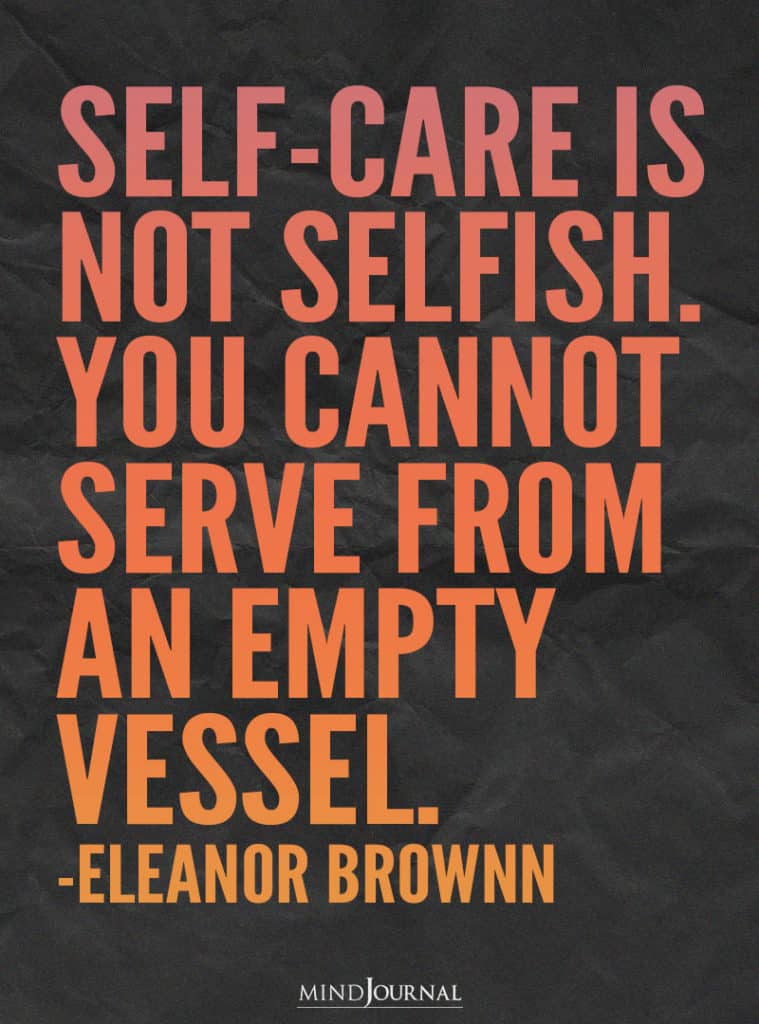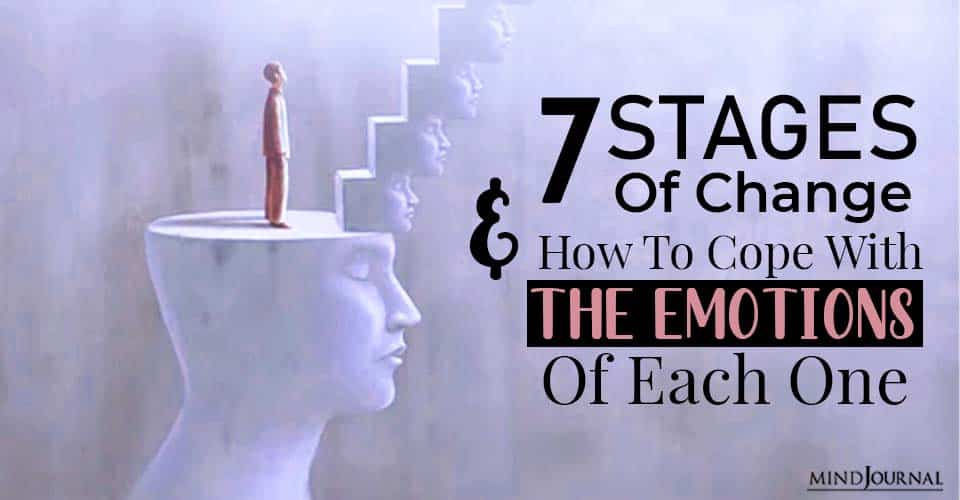Life will change — it’s inevitable.
There are various stages of change and emotions that come with each of them. If you want to prepare for change, learning these stages can be a huge help.
Right from birth, you are going to experience transitions in life. It starts at the beginning of life at birth.
Can you imagine the shock you must have felt being birthed into the cold world from the cozy, safe home of your mother?
After birth, you go from one transition to another, including your first steps, the first time you rode a bicycle, the first time your parents left you with a babysitter.
Then there is the first day of school. Puberty, when your body starts to go through many physical changes. First serious relationship. Leaving home. Going to university. Marriage, becoming a parent, being fired, moving to a different community, empty nest, retirement, and death — these are all part of life’s journey.
Your goal is to manage the challenges of life changes and transitions as best as you can.
Whether it’s happy or sad, everything about your life-changing still takes a lot of energy. Any time you are required to make changes in your routines, your relationships, and your location can take time to get used to.
When you face health challenges, it takes time to adjust to the changes in your body making it more difficult and sometimes impossible to do things you used to do. This can feel devastating.
Moving through transitions takes time and patience. In order to find happiness in your life right now, it is essential that you give yourself time and space to walk through the changes.
You are going to feel awkward, anxious and maybe depressed. Some days you are going to wonder how you are going to make it through this hard time.
Don’t try to do this alone. Find friends and family you trust to walk with you through this time. They can’t do the work for you, but they can be there to support and encourage you.
Read The Five Stages Of Grief: Exploring The Kübler-Ross Model
Here are the 7 stages of change and the emotions you go through when coping with them.
1. Experiencing strong emotions, sensations, and negative thoughts
There may be times when you are feeling overwhelmed by your emotions and feelings that you need more than your friends and family can offer.
There is no shame in asking for professional help through a coach, counselor, or psychologist. Getting professional help is a sign of courage because you can admit to yourself that you are feeling stuck.
2. Feeling a loss of self-esteem
It is natural to feel less confident about yourself during times of significant change. You start to question your abilities. You get caught up in fear. You feel lost.
You wonder if you are going to be able to find a way through the chaos. You don’t know what to do because this is uncharted waters.
Read What is Self-Esteem And How To Raise It?
3. Starting to accept the change
Over time you will start to accept the change even if you don’t like it. You discover that you are stronger than you realized. You remember that you are not alone and that people do care about you.
Most of all, you know that you still have a purpose for living.

4. Accepting that you need to let go of the past to be open to the future
You are going to experience grief as you move through transitions. It is crucial for you to find ways to feel the pain in a safe environment with friends, family or a professional.
The more you can allow yourself to feel your grief, the easier it will be for you to move on.

5. Starting to see the light at the end of the tunnel
It is getting to the point where you can look forward to the future. It is accepting that you still have a purpose of living. It is learning to live in the moment rather than being stuck in the memories of the past.
You start feeling lighter and your energy begins to come back.
6. Begin feeling better about yourself
Over time you begin to enjoy life more and more. You now have the energy to spend time with friends. You get back into your hobbies.
You eat better, get more exercise, and you begin to enjoy life again.
Read 15 Ways To Be Kind To Yourself (Especially When Feeling Down)
7. You start seeing the world again in a positive light
The world no longer feels dark and depressing. You have found the will to live again. You sense of humor comes back. You are eager to do things that bring you joy.
There are common challenges. With presence, you can manage the challenges of life transitions. The most important thing for you to do is face your pain, sadness, and despair. The only way to find relief is to find the courage to face it.
Here are 7 ways to manage and cope with the life transition.
1. Accept the change as normal
Your life is a series of transitions. The only thing you can be sure about is change. Sometimes change can be dramatic such as comes from death, a firing, or separation.
The quicker you can accept the changes the easier it will be for you to move through it into a new life.

2. Don’t be afraid to feel what you are experiencing
The worst thing you can do is to repress your emotions. The more you push the emotions away, the worse you will make it for yourself.
You may find it hard to connect with your pain, sadness, and fear. It might feel like they are taking over your life. Despite the intensity of your feelings and sensations, the more you can learn to live with them the less you will feel constricted by them.
One way to move through these intense sensations and emotions is to use deep breathing, meditation, and prayer. These are ways to ground yourself in your body, heart, and head.
Read Why You Need To Forget Positivity, Keep Your Ego And Embrace Your Darkness
3. Take the time to grieve what you lost
To be open to the future you need to let go of what you have lost whether that is a person, pet, job, or relationship. Part of grieving is to feel your loss as I described above. The important thing is finding safe places to feel the intensity of your emotions.
You will most likely feel comfortable to do this in a place where you have some privacy and presence of a friend, family member, or professional you trust.
Find the courage to verbalize what you have been through as long as it does not become like a repeating record.
Express your emotions in whatever way it is safe for you and the people around you. If you feel like crying let out the tears.
4. Self-care

Going through transitions takes a lot of energy. It is vital for you to make sure you are eating well, getting plenty of sleep and not afraid to ask for help.
You might want to let go of some of your extra duties, if possible, to give yourself more time to take care of yourself.
Learn to be gentle with yourself as you move through this challenging time. You can be your own worst enemy. Give yourself extra space to prepare for a new chapter in your life.
5. Remember your life values
It can be easy to lose yourself during this time of transition when it feels like the world has turned upside down.
Take time to reflect on what is important to you as you start to build the new normal for your life.
What do you need to keep doing that gives you life? Is there something new you want to try in your life? During this time of transition might be the perfect time to try it!
6. See the world with fresh eyes
As you move through the grief, you will begin to see the world with fresh new eyes. Sometimes you need something dramatic to happen to open yourself to new possibilities.
Maybe it is something you have always wanted to do but have been too afraid to try.
7. The grief will pass
Going through physical, emotional, mental and spiritual transformation is intense. Avoiding intensity through drugs and alcohol can be tempting. But in the end, if you can find the courage to face this, head on, you are going to make a faster recovery.
Your emotions are constantly changing. Just remind yourself your intense feelings and sensations will pass. The more you can face your feelings and sensation the less hold they will have on you and the quicker they will pass.
Read How Self-Compassion Can Fight Perfectionism
You have no reason to fear change.
Change is the one guarantee of life. The best attitude is to accept that change will happen, expected or not.
When you have experienced some form of loss, it is better for you to face it. But you need to give yourself time to work through it.
You need to acknowledge that you are going to require extra care during this time of transition. Make sure you are getting your needs met and that you have a safe space to release your sadness and anger.
Have family and friends you trust to walk with you through this journey. And, when your friends and family are not enough, find a coach, or counselor who can journey with you helping you to reconnect with your inner wisdom, courage, and strength.
Openly facing the challenges of life transitions, you will find greater purpose and meaning in life as you grow mentally, emotionally, spiritually and physically through the forces of change.
Written by Roland Legge Originally appeared in Yourtango Republished with permission












Leave a Reply